1899
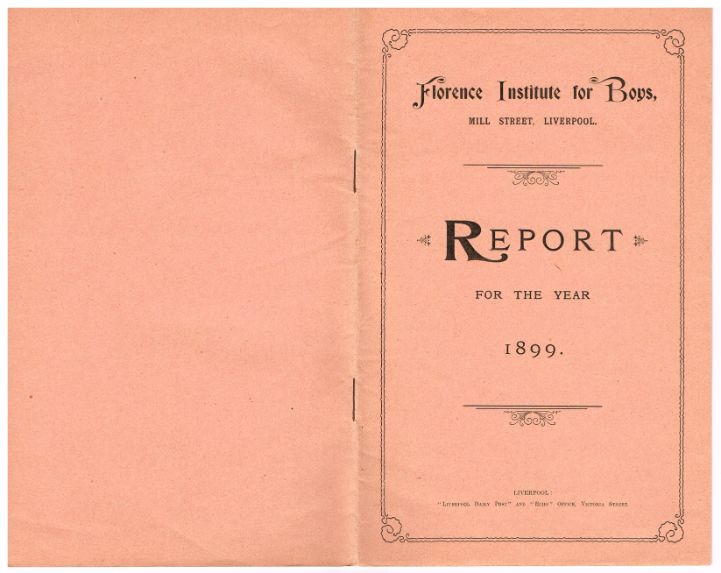
1899 The 1899 report clarified the Institute’s role as a provider of education, physical recreation and entertainment. It announced that the education department was not in active operation, and stated that ‘All instruction must by the express terms of the Trust Deed be purely voluntary, and we are also by the same deed prohibited from […]
1898
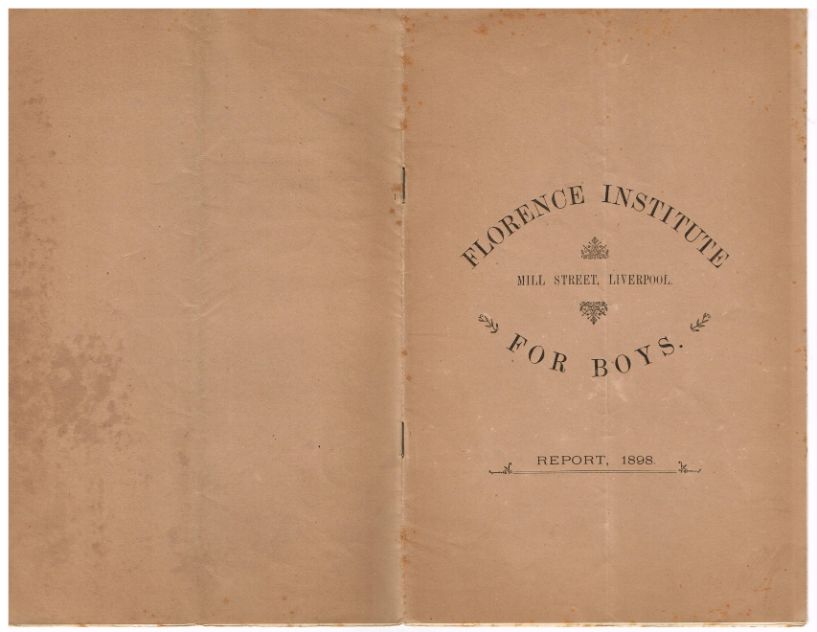
1898 This year marked the first record of boxing at The Florence Institute, with a class formed by Mr E.C H Wilkins. Success was reported for the Gymnasium members, where at the Competition of Junior Teams of Liverpool and District, the Florence Juniors were victorious, after ‘a very tough fight with the Balfour Juniors and […]
1897
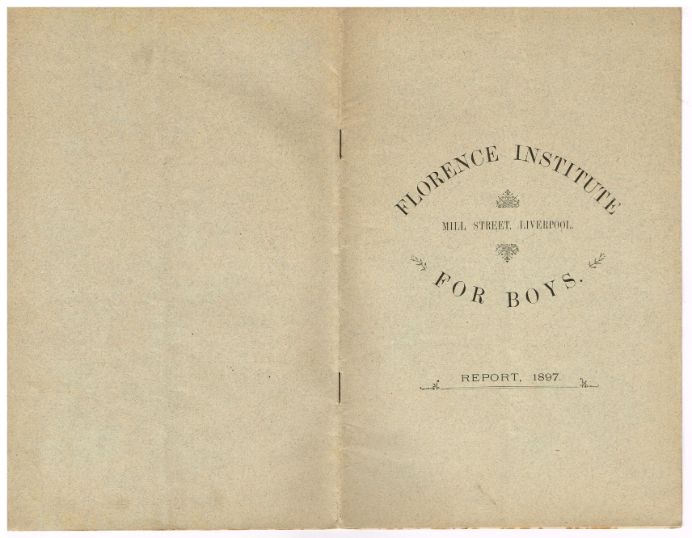
1897 The 1897 report began by announcing the death of the Institute’s president, Mr Thomas Holder, naming his successor as Mr Augustus F. Warr, M.P. The Physical Recreation Committee described steady progress, and stressed the importance of member’s commitment to their activities, particularly the Cadet Detachment, who were highly praised at the annual inspection by […]
1896
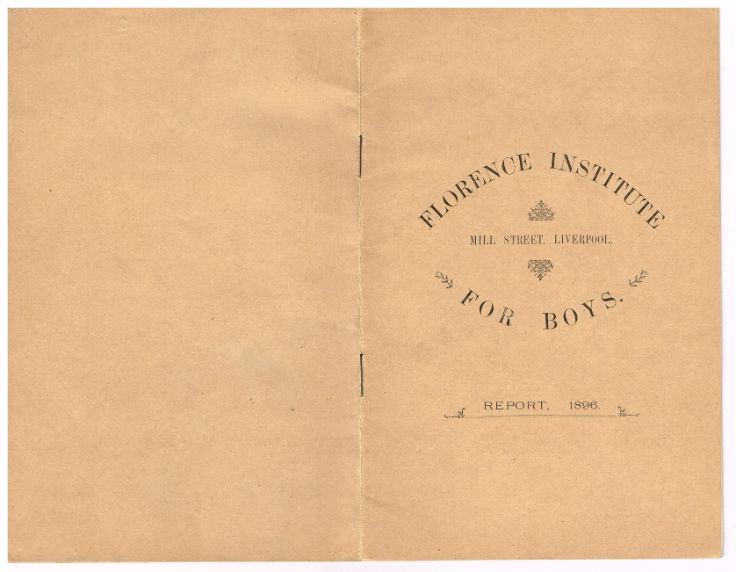
1896 The 1896 report detailed the Institute’s attempts to return to form in the aftermath of 1895’s smallpox outbreak. A bequest from the estate of Mr B. Vincent Hall (son of the Institute’s founder) of £5,000 was greatly appreciated; the Institute had been slowly slipping into financial difficulties and it was felt that Mr. Hall […]
1895
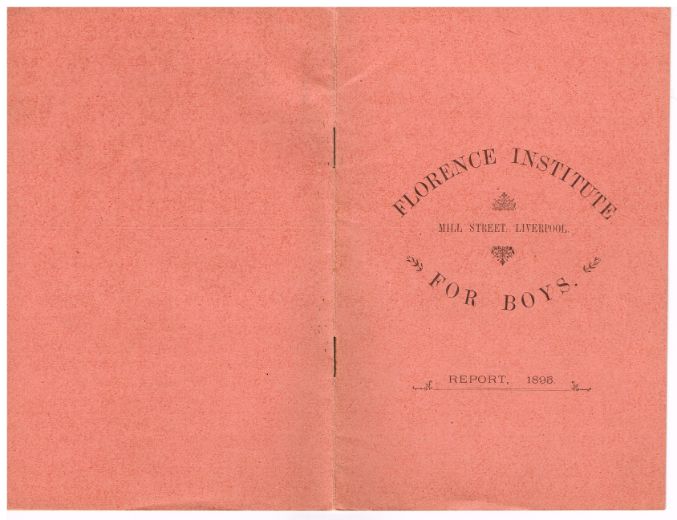
1895 An outbreak of smallpox in the building led to the closure of the Institute for two months whilst it was thoroughly disinfected, cleaned and re-painted, at a cost of £80, over £6,300 in today’s money! Smallpox is a highly infectious disease, which spreads rapidly, especially in densely populated areas. Its symptoms are a rash, […]
1890
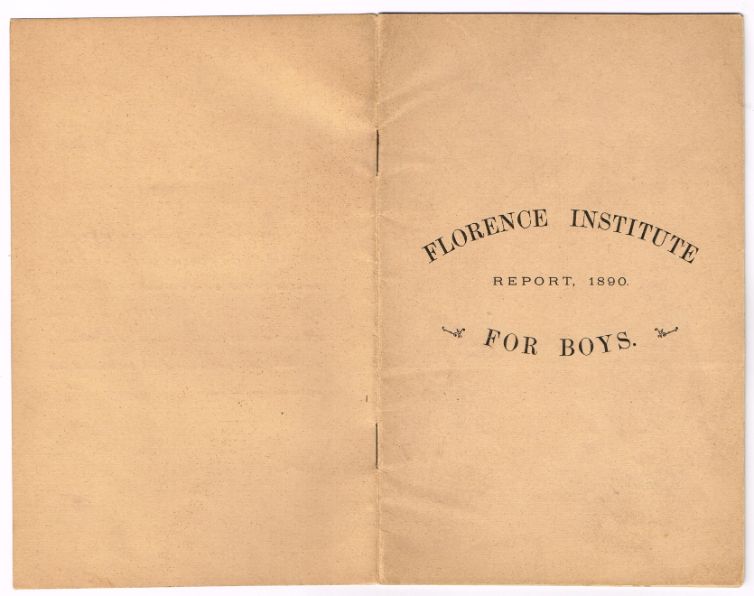
1890 The Florence Institute first opened its doors on 7th September 1889. It was founded by Bernard Hall, former Mayor of Liverpool and West India merchant, in memory of his daughter Florence, who died in Paris in 1887, aged just 22. Hall did not live long enough to witness the opening of the Institute, as […]
1891
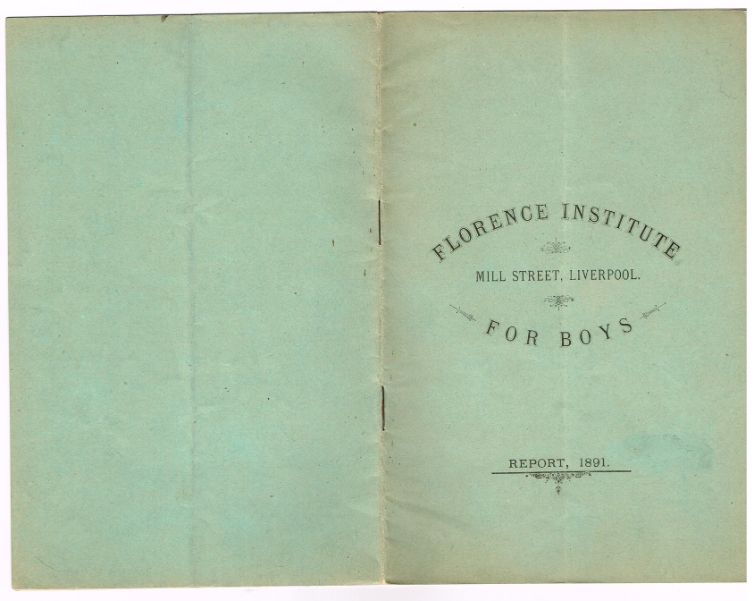
1891 The 1891 report detailed the Committee’s frustrations in keeping the activities of the Institute’s members under the watchful eye of its instructors…. Difficulties arose through the lack of space for physical recreation; although cricket and football were played in Sefton Park and ‘on a piece of waste piece of ground lying between Mill Street […]
1894
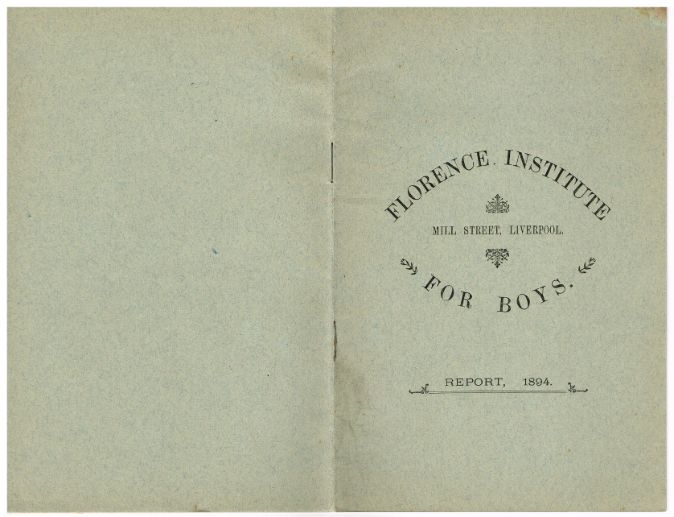
1894 By 1894, The Florrie was contending with fresh challenges as it grappled for the attention of the neighbourhood’s youth. A Music Hall opened next door to the Institute, and together with local pubs drew away ‘many who spend their money on one evening’s entertainment which would have otherwise have provided them with the privileges […]